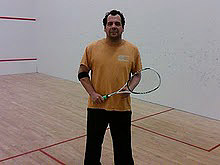Chapter FOUR
by Will Gens
John should have seen signs of trouble, especially with Jessica. And Jill. His love, his anchor, he always believed that they were destined for one another. If ever opposites attract, they were opposites. She was practical, organized, methodical. He was a bit of a dreamer, an "idea" man as he liked to call himself. He thought Jill loved him for that and thought he was and would always be the center of her universe, as she was his.
Jessica had gone missing now for 8 months, and there was little or no trace of her after that fateful day when it seemed the world, their world turned upside down on a screw. John, his life fallen apart, had begun to sense the bottom, but what he feared most was that the pit he had fallen into was bottomless, and maybe he was indeed in hell.
When the police were notified about Jessica's disappearance and they began retracing her steps, Mrs. Peabody, the girl's locker room attendant, told them that she saw Jessica come through the front entrance of the club and go past her in a rush to her locker, fiddling furiously with the combination and rummaging through it frantically before she found what she wanted and settled into one of the big oversized lounge chairs. Noting that Jessica had been kicking her feet as they rested over the arms of the chair, Mrs. Peabody told the police, “I thought she was so young and beautiful and carefree, but her posture on the chair was a bit rude, so I told her to please sit properly in the chair.”
Mrs. Peabody was a grandmother and matriarch of the Peabody clan, a portly matronly woman with the shock of grey hair who was once county squash champion. You'd never know it since, as a grandmother, she never stepped on court (60 lbs heavier than her playing days) but loved to be around the game and helped her grandson run his squash tournaments. She kept a keen eye on the manager of the club, Cameron Hiscoe, and his daughter, Donna. Mrs. Peabody didn't like Donna at all, viewing her as “a bit loosy-goosy and always with these unsavory types, bad boy types hanging around the club.” She remembered that “the Jessica girl sort of rolled her eyes but then said, ‘Sorry, Ma’am, just waiting for my dad and brother.'” Mrs. Peabody said, “It's okay, darling, I have to watch young-un’s like you who have all that nervous energy taking it out on our poor furniture."
"The girl smiled, she found my reasoning a bit humorous.” Mrs. Peabody told the police that she asked the girl a little later, "Wouldn't it be better, darling, if you waited near the front desk so your dad could see you?" She added, "The girl was sitting there fiddling with her cell phone, I guess she was answering texts or something."
Mrs. Peabody had gone about her business of straightening up the locker room, bringing in fresh towels, talking to some of the members and quieting some of the younger girls down if they became too loud and boisterous. She told the police that she last remembered the girl on her cell talking in a funny manner, bright red, like she was blushing...she thought, "Love is nice." And that was the last anyone saw of Jessica. The police re-interviewed the manager and his daughter, who had first seen Jessica leave but didn't notice her coming back. They never saw her leave again. "We're sure, absolutely sure, because we would have noticed her," Cameron Hiscoe insisted.
John remembered later when he spoke to the police that in the craziness of the Walter accident, he told Jessica that he'd meet her out at the front desk and to wait for him and Sam, after which he took the call from Jill and totally forgot about Jessica. In those ten minutes that he was on the phone with Jill, Jessica had received a call on her cell that police later traced to a disposable cell phone. There were also numerous text messages from another phone, which also was disposable.
The police were unable to garner any leads from either of the two phones. It was their theory as they checked her phone records and deciphered her laptop, which police confiscated later as evidence when they came and went through Jessica's room, that she had met someone on Facebook, developed a bit of a flirtation, and had very possibly become the victim of Internet Grooming, a crime that only in recent years had surfaced as a result of the internet. Severe penalties had been imposed against men who developed email, text, or phone relationships with under-age girls. Often the "groomers" were middle-aged men, many married and with families. In extreme cases, these relationships had led to rape and, on rare occasions, disappearance.
Jessica's case troubled the police because it had some of the earmarks of another disappearance of a teenage girl in Manchester about a year earlier. A potential serial "groomer" might have taken it to the next level, posing as a teenage boy, cool and captivating, perfectly normal behavior for someone of that station. But when he saw some of the text and Facebook messages on Jessica’s phone, John became nauseated at the thought that a 45-year-old man might be behind these texts, someone wanting to hurt these girls.
He and Jill seemed to blame each other. Jill grew to hate John and saw his descent into his private hell as pathetic. She was a fighter. Three weeks after the police told them that there were no leads but that they believed that her disappearance fit the M.O. of an internet groomer --- funny how he himself had used that Latin-phrase acronym so often ("Hey that's his M. O.,” “Hey, typical of his M. O.,” “Jessica, is that what your M. O. is?”) --- John told his wife, "Jill! You should have been more diligent about her Facebook crap, damn it, why weren't you monitoring her?"
"John,” she shot back, "if you hadn't spent so much time at that club maybe I would have had time. God only knows what you were doing! Don't put this on me, you bastard!" John was stunned, his wife never had spoken to him that way. And the look in her eyes, the hatred, utter hatred for him. He realized she blamed him, not just for Jessica, but for everything, losing the club and house and everything they had was just part of it. Loss of possessions they could have dealt with but not your own child, your daughter, your son's sister, your parents’ grand-daughter.
Walter's daughter, Kristin, surprised him the most. At first she was very accommodating and sympathetic because of the accident and how it coincided with the tragedy of Jessica disappearing. But then something happened, he wasn't quite sure, Kristin changed. While they seemed at first a bit awkward around each other because of their past history, John felt ashamed how he let himself down and became involved with Kristin while he was married to Jill. Kristin hired a really shark lawyer and basically was taking John and Jill for everything they had. John had never taken out the public liability policy, he just let it slip like he did so many other things. This slip cost them dearly, and he blamed himself. "The world turns on a dime, nah, on a screw,"...he poured another drink and laughed sarcastically to himself. "Yeah, a screw, in more ways than one."
In the months since the accident and Jessica's disappearance, John lost his business, his house, his daughter and finally Jill. How ironic, he thought, sinking further into his morose state, how no matter what happens, people will always take advantage of you no matter how far down you are; they will try and kick you even further down.
Gerry Stanhope, Walter's friend and squash partner , who helped Jill pull herself together and call the lawyer and police moments after the accident, was very supportive, offering help with business issues where the club was concerned. Gerry never ceased to remind John, "My friend you screwed up, what can I say, there's nothing we can do but try and make sure you don't end up behind bars. Kristin for some reason is out for blood, your blood, my friend." Some friend, John thought, while Gerry was looking out for his well-being, he was screwing Jill. "Screwed, screwing, screwed...no two ways about it." He was drinking heavily now. It wasn't beyond his scope to begin thinking about ending his life. "Dramatic,” he thought, "but effective.” And then he thought of his son, what would Sam do, Sam needed him, he had to hang in there for Sam, only for Sam....he then put his head down on the kitchen table and passed out.
--------------------------------------------------
He awoke as he heard the door shut. He was in a fog, his tongue was stuck to the roof of his mouth. He tried to gather his thoughts, his dreams -- he looked out the kitchen window and saw Sam headed off to the school bus stop, he didn't look back. John wanted his son to look back and smile, the wonderful perfect smile that cost him 8,000 pounds. But Sam walked down the street, turned the corner and was out of sight. There on the counter was a half-finished bowl of cereal, the milk left out, "typical Sam.”
John didn't know what hurt more, his head from all the drink or his heart. The dreams were bad, he tried not to remember them, but he knew they were bad; "Why couldn't Sam have turned around, why couldn't I have seen his smile?" Almost mechanically, John went into the bathroom and rummaged through the medicine cabinet. There he found his prescription of Mobic, a strong anti-inflammatory for his Achilles tendinitis last year. He never used it, but kept it just in case. He looked at the expiration date, still valid. Expires in 2 months, "Two months," he thought, "that is like an eternity."
He took a pee, stood there looking...he still felt groggy from the booze...everything he was doing would be for the last time. "How many pees in this lifetime have I taken, I can't even fucking calculate, something I should have done, too late now, this will be my last one..." He finished off and went into the kitchen, took the remainder of Scotch and fumbled with the prescription bottle before it popped open. He wanted to tell Sam something, how proud he was, how sorry, how he knew Sam would be a great squash player and a great father someday, a son always surpasses his father, "Isn't that the law of nature? I can't even think of you, Jessica, my sweet girl, my princess," he said in a whisper. And that familiar phrase came back into his head, "The world turns on a dime, nah, on a screw," he laughed a bit to himself. He took a handful of the Mobic, counted 25 -- "This ought to do it,” he said, and opened the bottle of Scotch.
The phone rang, more shrill-sounding in his head than a million dying chickens.

Will Gens
Back To Main



